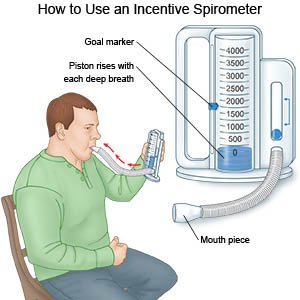Heart Transplant
Medically reviewed by Drugs.com. Last updated on Sep 23, 2025.
A heart transplant is surgery to replace a damaged heart with a new heart from another person.
DISCHARGE INSTRUCTIONS:
Call your local emergency number (911 in the US) for any of the following:
- You feel lightheaded, short of breath, and have chest pain.
- You cough up blood.
- Your lips or nail beds turn blue or white.
- You have any of the following signs of a heart attack:
- Squeezing, pressure, or pain in your chest
- You may also have any of the following:
- Discomfort or pain in your back, neck, jaw, stomach, or arm
- Shortness of breath
- Nausea or vomiting
- Lightheadedness or a sudden cold sweat
Seek care immediately if:
- You have a fever.
- You urinate less than usual or not at all.
- Blood soaks through your bandage.
- Your surgery site is swollen, red, or has pus coming from it.
- Your arm or leg feels warm, tender, and painful. It may look swollen and red.
Call your cardiologist or surgeon if:
- One or both of your ankles swell.
- You are dizzy and feel like you are going to faint.
- You fall when you try to get up or walk.
- You feel anxious and cannot think clearly.
- You have a cough, sore throat, or a cold sore.
- You have pain in your surgery site that does not get better after you take pain medicine.
- Your stitches or staples are loose or come out.
- You have questions or concerns about your condition or care.
Related medications
Medicines:
You may need any of the following:
- Prescription pain medicine may be given. Ask your healthcare provider how to take this medicine safely. Some prescription pain medicines contain acetaminophen. Do not take other medicines that contain acetaminophen without talking to your healthcare provider. Too much acetaminophen may cause liver damage. Prescription pain medicine may cause constipation. Ask your healthcare provider how to prevent or treat constipation.
- Heart medicines may be needed to control your heart rate and blood pressure.
- Antibiotics help prevent a bacterial infection.
- Antirejection medicine helps prevent your body from rejecting your new heart.
- Diuretics help remove extra fluid that collects in your body. These are often called water pills.
- Cholesterol medicine helps lower the amount of cholesterol in your blood.
- Take your medicine as directed. Contact your healthcare provider if you think your medicine is not helping or if you have side effects. Tell your provider if you are allergic to any medicine. Keep a list of the medicines, vitamins, and herbs you take. Include the amounts, and when and why you take them. Bring the list or the pill bottles to follow-up visits. Carry your medicine list with you in case of an emergency.
Self-care:
- Go to cardiac rehab if directed. Cardiac rehab is a program run by specialists who will help you safely strengthen your heart and prevent more heart disease. The plan includes exercise, relaxation, stress management, and heart-healthy nutrition. Healthcare providers will also check to make sure any medicines you take are working. The plan may also include instructions for when you can drive, return to work, and do other normal daily activities.
- Take deep breaths and cough 10 times each hour. This will decrease your risk for a lung infection. Take a deep breath and hold it for as long as you can. Let the air out and then cough strongly. Deep breaths help open your airway. You may be given an incentive spirometer to help you take deep breaths. Put the plastic piece in your mouth and take a slow, deep breath, then let the air out and cough. Repeat these steps 10 times every hour.

- Eat heart-healthy foods. Healthy foods include fruits, vegetables, whole-grain breads, low-fat dairy products, beans, lean meats, and fish. Ask if you should eat foods that are low in fat, cholesterol, or sodium (salt).

- Drink liquids as directed. Ask how much liquid to drink each day and which liquids are best for you.
- Do not smoke. Nicotine and other chemicals in cigarettes and cigars can cause heart problems after a heart transplant. Ask your healthcare provider for information if you currently smoke and need help to quit. E-cigarettes or smokeless tobacco still contain nicotine. Talk to your healthcare provider before you use these products.
For support and more information:
- American Heart Association
7272 Greenville Avenue
Dallas , TX 75231-4596
Phone: 1- 800 - 242-8721
Web Address: http://www.heart.org
- National Heart, Lung and Blood Institute
Health Information Center
P.O. Box 30105
Bethesda , MD 20824-0105
Phone: 1- 301 - 592-8573
Web Address: http://www.nhlbi.nih.gov/health/infoctr/index.htm
Follow up with your cardiologist or surgeon as directed:
You will need to return to have follow-up tests, your stitches or chest drains removed, or other procedures. Write down your questions so you remember to ask them during your visits.
© Copyright Merative 2025 Information is for End User's use only and may not be sold, redistributed or otherwise used for commercial purposes.
The above information is an educational aid only. It is not intended as medical advice for individual conditions or treatments. Talk to your doctor, nurse or pharmacist before following any medical regimen to see if it is safe and effective for you.
Further information
Always consult your healthcare provider to ensure the information displayed on this page applies to your personal circumstances.
